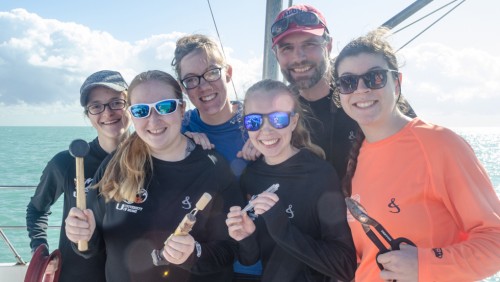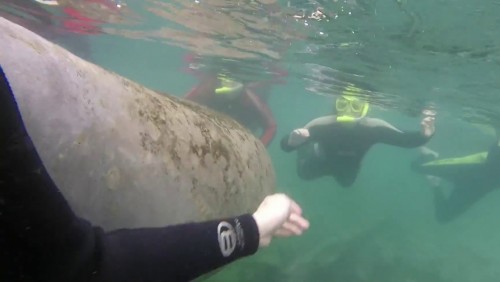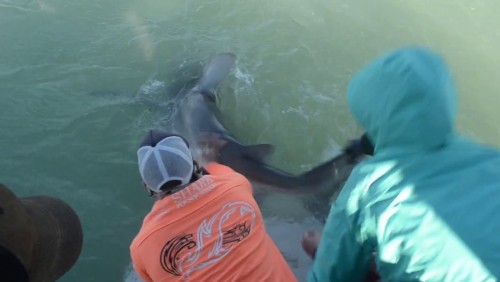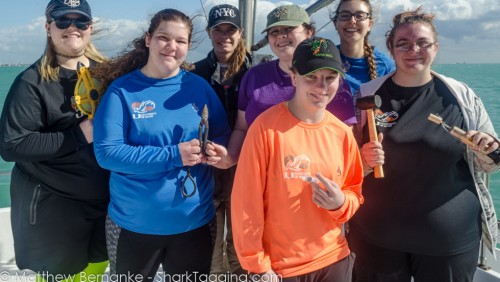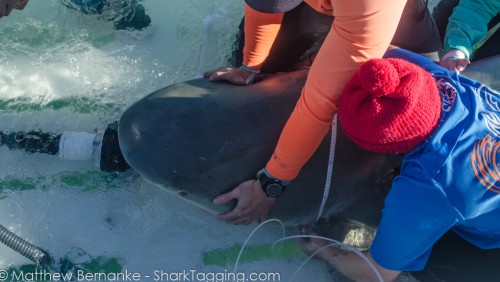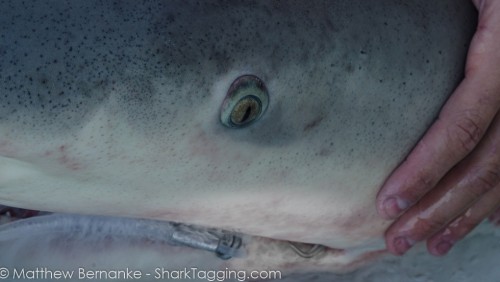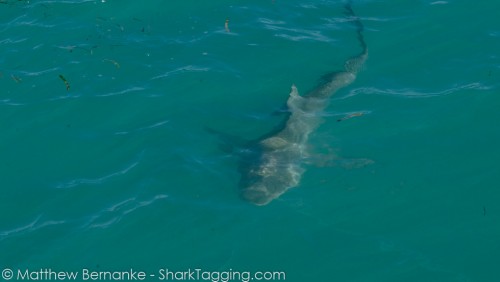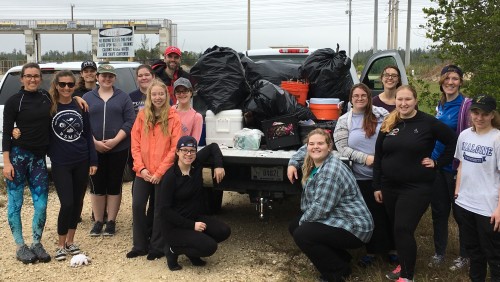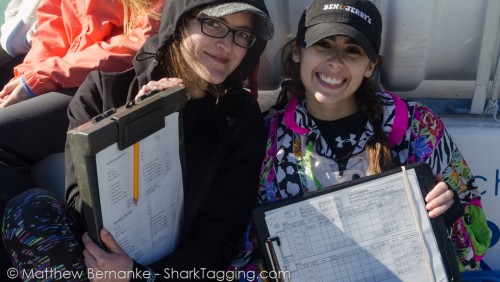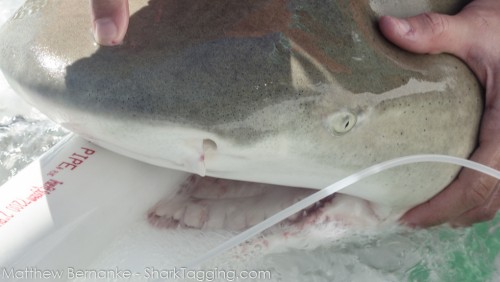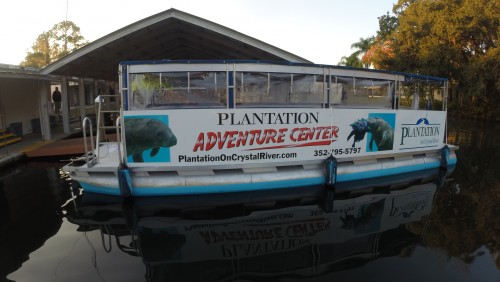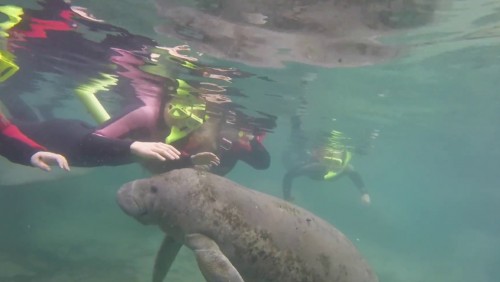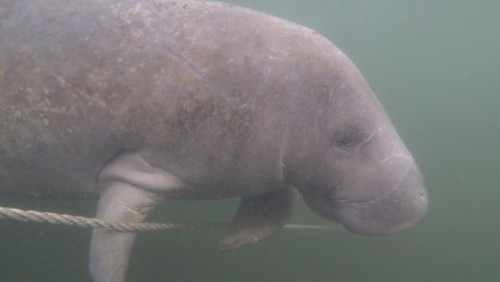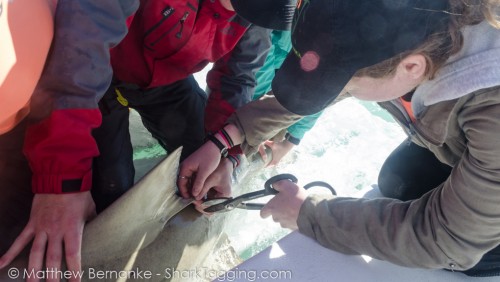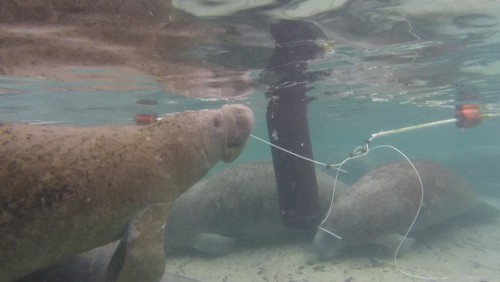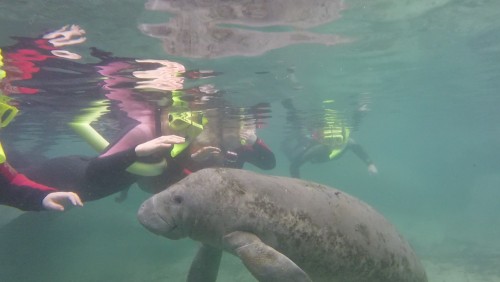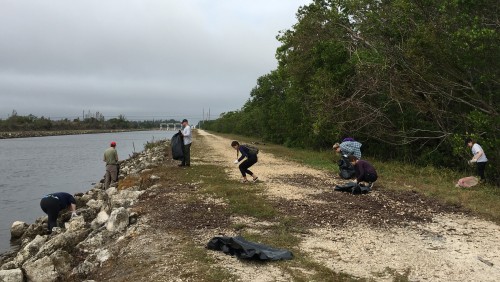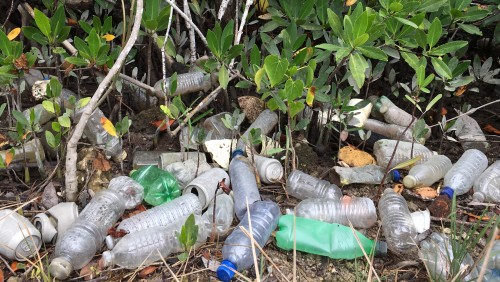Lissa McMeans wasn't too nervous about tagging sharks.
But when an almost 700-pound gentle manatee began chomping her long blonde hair, it became, she said, “slightly terrifying,” especially when it wouldn't let go.
More than anything, the Zoo & Wildlife Biology major's journey to Florida during the opening days of 2018 was memorable.
"I am so thankful that I got to have this experience," she said. "The adventures we had and the camaraderie we experienced was so powerful."
McMeans and 10 additional students - Mykal Shupe, Olivia Roupe, Abigail Rootring, Pamela Dare, Anna Kilian, Sasha Hoey, Katlyn Todd, Michelle Brackett, Anessa Fogle, and Lauren Millinger - were the second team of Malone University zoo & wildlife biology majors led by faculty Jason Courter and Karyn Collie who had the opportunity to join a shark tagging expedition with a team from the University of Miami's Shark Research and Conservation Lab. The team also participated in cleaning up ocean debris and snorkeling with manatees.
The adventure was generously funded by the Herbert W. Hoover Foundation, which is deeply committed to bridging the gap between Stark County and ocean conservation.
"We are grateful for the continued support of the Herbert W. Hoover Foundation and their commitment to investing in the lives of our students and providing them with this once-in-a-lifetime opportunity," said Courter.
For the shark tagging, a team of researchers insert identification tags into sharks' dorsal fins. The tags do not hurt the sharks, and the entire process takes about five minutes, as to get the sharks back into the water as quickly as possible.
"I took part in tagging a lemon shark," said Shupe, "And it was just such an awesome reminder that here is this creature that God made. He created it, and it's a life. I was touching a shark - and its only restraint was four other human beings, and yet I was just fine."
"One of the scientists told us anecdotally that no human being has ever gotten into the ocean without a shark knowing, they just don't care," explained Todd. "We learned so much and got to be a part of an incredible team."
Particularly compelling for the students was cleaning up a portion of a beach. The team picked up approximately 530 pounds of trash - mostly lightweight plastic - in a quarter of a mile.
"Trash doesn't go away, it's just out of our sight," explained Kilian. "Now when I visit the beach, I think differently - and I can't NOT see trash. And it just took one guy to start the manatee sanctuary we visited. Even though you're only one person, you can make a difference. I get inspired every time I think about our experience."
Kilian and Shupe are helping to start a student organization MEAP, Malone for Environmental Awareness & Protection. The group hopes to inspire other students to make a difference in creation stewardship. Shupe also is an intern with Young Evangelicals for Climate Action (YECA), and the new student organization is a direct result of her work.
"It's really exciting to see what is building on campus," said Collie.

